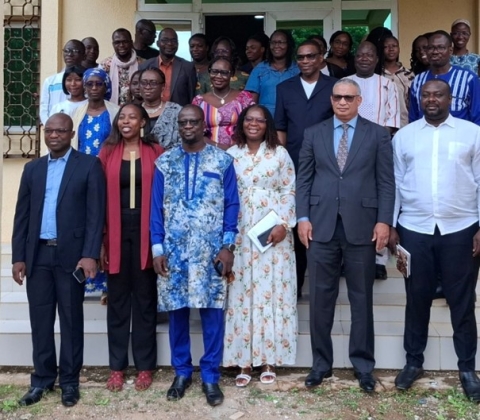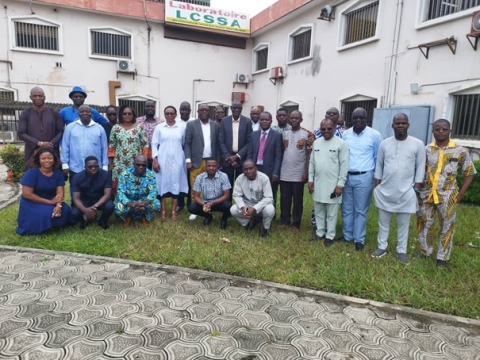Burkina Faso/Filière agro-alimentaire: le PRSA-Burkina Faso forme plus de 52 promoteurs aux normes de qualité des produits agro-alimentaires
As part of the implementation of components 2 and 3 of the West Africa Food System Resilience Programme (FSRP), Burkina Faso (FSRP-BF), a microproject co-financing process has been in place since November 2023. The aim of this mechanism is to support promising initiatives by players and promoters in the country’s strategic agri-food sectors, by improving access to the financial and technical resources needed to increase the productivity, competitiveness and incomes of beneficiaries. The sectors concerned include rice, maize, cowpeas, onions, tomatoes, moringa, orange-fleshed sweet potatoes and certain fruit crops.
Following a selection process, a total of 304 micro-projects were selected, representing various links in the value chains of the selected sectors. Subsidies were allocated to beneficiaries to facilitate the implementation of their projects, thereby strengthening local capacities for the production and processing of agricultural products.
To guarantee the quality of the agri-food products produced by these micro-projects, the FSRP-BF, in partnership with the Agence Burkinabè de Normalisation, de la Métrologie et de la Qualité (ABNORM), organised a training session from 28 to 29 October 2024 in Koudougou. The training session provided an opportunity to raise awareness and train players in the processing chain on quality standards and the product certification process. More than 52 promoters, including 40 women, from the maize, cowpea, tomato and orange-fleshed sweet potato sectors benefited from this essential training.
The participants received in-depth training on various key aspects of production and processing, including food standardisation, certification requirements, good manufacturing and hygiene practices, as well as packaging, labelling and legal metrology. This capacity-building will not only enable them to improve the quality of their products, but also to access more lucrative markets.
The training is part of a strategic approach to promoting food security and the resilience of agricultural systems in Burkina Faso. It represents an essential lever for the sustainable development of the agri-food sector, by bringing local products into line with international quality standards. The aim of these efforts is to make Burkina Faso products more competitive on national and international markets, thereby helping to improve living conditions for producers and strengthening the country’s food sovereignty.








